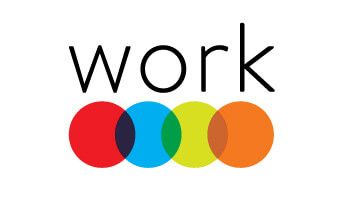English at Work
So you’ve got a job working in English? Firstly, congratulations! The fact that you have successfully passed a job interview in English and been given a position is a huge achievement. Your English must already be of a very high standard to have come this far.
Now the next challenge is to get used to using English at work; not just in your dealings with clients or customers, but also with colleagues and bosses. As opposed to using English in everyday life, speaking with people in the office and in business situations comes with its own set of rules and patterns of communication. In particular, if you are working with native English speakers, there are certain guidelines to follow to make sure that you get through your day having built positive working relationships and without offending anyone!
Worried? Don’t be – we’ve got the insider tips on how to use the right language to start your new job off on the right foot and make a great impression!

USE ENGLISH AT WORK TO BUILD RELATIONSHIPS
Make Small Talk
Part of working in English-speaking environments involves making “small talk” in particular situations. “Small talk” is a kind of casual conversation that fills up awkward silences or helps people to start a conversation when they don’t really know each other. Usually small talk is made between strangers who are waiting in public places or have just met at a party, for example. At work, office employees who are not necessarily good friends but work in the same department will often make small talk when they greet each other in the morning, are waiting in a queue for lunch, standing in an elevator or are waiting for a meeting to start. For example, if you bump into a colleague while grabbing your morning coffee you will probably have a quick conversation about the weather or current events.
Here are some examples of small talk topics that are considered to be ‘safe’ that you can use the next time you are in this situation.
About the office/work:
- How has your week been so far?
- How’s it going with your new (project/client/position)?
- I can’t believe how busy it is today, can you?
- What do you think about the new (lunchroom/computers/building)?
- How was your (weekend/holiday/day off)?
- I’m looking forward to the weekend. What do you have planned?
Talking about the weather:
- What a beautiful day! Don’t you wish we were outside?
- It looks like it’s going to rain.
- Can you believe the weather recently?
- I hear there’s going to be a storm tonight!
Talking about current events:
- Have you heard about the… (news story)?
- That news about the earthquake/fire/storm/murder in the countryside is awful, isn’t it?
- Have you read/seen the news today?
- I heard/read that there was flooding in the city this morning. I hope you didn’t get caught up in it!
- How awful was the traffic this morning! Did the bus strikes affect you?
USE POLITE ENGLISH AT WORK
Use the right language to sound polite.
Have you ever heard the English expression ‘you catch more flies with honey than vinegar’? It basically means that you are more likely to get what you want by being friendly and polite than being rude or making demands. Of course, most people do intend to be polite when they are speaking to colleagues and clients, but it is often difficult to know the most polite way to make a request, ask for permission, make a suggestion or say no when you are working in a foreign language. Here are the best ways to interact politely when you are speaking English at work to get what you want a keep a calm and friendly atmosphere with the people around you.
Modal verbs – use modal verbs like can, could, might, would to sound less direct and more polite.
- Could you please help me with this customer?
- Can you photocopy this for me please?
- Would it be okay if we moved the deadline to next week?
- Do you think you might be able to get that to me by this afternoon?
- If it’s okay, I would like to start the meeting a bit earlier than usual.
Distancing phrases – use phrases in the past tense (I was wondering if…, I was hoping…) rather than the present to make them more distant and polite.
- I was wondering if I could take the afternoon off tomorrow?
- I was hoping we could have a meeting this afternoon. Is it possible?
- Sorry to bother you, but I just wanted to ask if you’d received the document?
- I thought it might be a good idea to raise the prices for the next year.
Tentative language – use language that sounds more tentative when you need to say no, reject someone’s decision or proposal or decline an offer. This makes it less direct and is more likely to soften the blow, leaving the person feeling less upset.
-
- I don’t know if that is the best option for us right now.
- Perhaps we could consider that at another time.
- Maybe your ideas would be more relevant for the other team’s project.
- I’m afraid you haven’t been accepted for the position.
- I’m not sure if that would be the best way forward.
Don’t be afraid to try out these expressions while using English at work. Or, for even better results, speak with an experienced advanced Business English coach to ensure you feel confident and prepared to make it in your new job!








